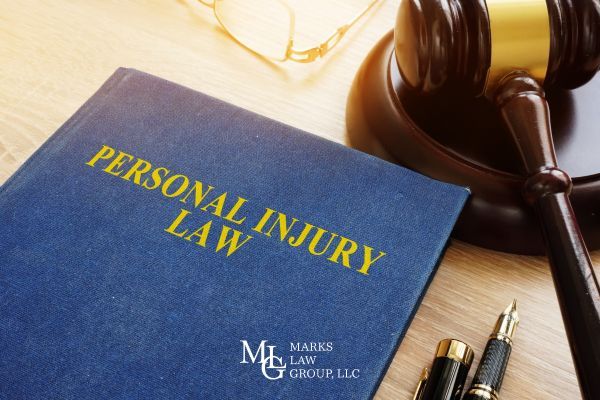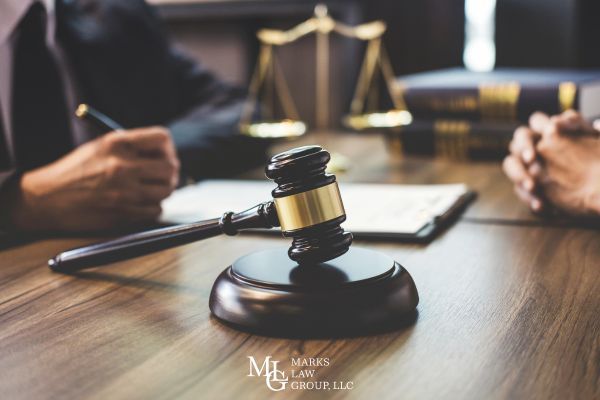Animal attacks can lead to serious injuries, emotional trauma, and unexpected medical expenses. If you or a loved one has been attacked by an animal on someone else's property, you may be wondering whether premises liability laws apply. In Georgia, property owners have a legal duty to maintain a safe environment for visitors, which may include preventing harm caused by animals on their property.
If you or a loved one suffered an animal attack on someone else's property, you may have legal options. Seeking guidance from a personal injury lawyer in Decatur, GA, can help you understand your rights and pursue compensation for medical bills, lost wages, and other damages. Call Marks Law Group at (678) 251-9309 today to discuss your case and explore the next steps.
Understanding Premises Liability in Georgia
Premises liability refers to a property owner’s legal responsibility for injuries that occur on their property due to hazards or dangerous conditions. This includes unsafe structures, slippery floors, inadequate security, and even dangerous animals. If an animal owner fails to control their pet or fails to warn visitors about potential dangers, they may be held liable for an animal bite or attack. Many property owners carry liability insurance to cover claims related to injuries that occur on their premises.

Property owners in Georgia must take reasonable precautions to keep their premises safe. This includes securing potentially dangerous animals, providing warnings about known hazards, and ensuring that visitors are not exposed to unnecessary risks. If a property owner is aware of an animal's aggressive tendencies but fails to take precautions, they may be held liable for any resulting injuries. Premises liability lawyers can help victims determine if a breach of duty occurred and whether they are entitled to compensation.
Types of Animal Attacks Covered by Premises Liability
Not all animal attacks automatically fall under premises liability laws. However, certain circumstances can make property owners responsible for injuries caused by animals on their premises.
Dog Bites
Dog bites are one of the most common types of animal attacks. In Georgia, property owners can be held liable for dog bites if they knew or should have known that the dog had aggressive tendencies. Unlike some states with a "strict liability" rule, Georgia requires proof that the animal owner was negligent or aware of the dog's dangerous nature. If a dog has bitten someone before or has shown signs of aggression, the owner may be held responsible under premises liability laws. Victims should consider speaking with a bite attorney to discuss their legal rights and potential claims.
Other Animal Attacks
In addition to dog bites, premises liability can apply to other wild animal attacks or injuries caused by exotic pets, livestock, or even wildlife kept on private property. If a property owner keeps a potentially dangerous animal, such as a snake, large cat, or aggressive livestock, they must prevent that animal from harming visitors. Failure to do so could make them liable for any resulting injuries. Personal injury attorneys often handle a wide range of cases, including those involving dangerous animals on private property.
Dangerous Animal Breeds
Some dog breeds have a reputation for being more aggressive than others. While Georgia does not have a statewide ban on specific breeds, certain cities and counties may have breed-specific regulations. However, premises liability cases do not automatically depend on the breed of the dog but rather on the owner's knowledge of the animal’s behavior and whether reasonable steps were taken to prevent attacks. Insurance companies may also consider certain breeds "high-risk" and deny coverage for claims involving those animals.
Legal Requirements for Property Owners in Georgia
Property owners must meet specific legal standards to be held liable for animal attacks. Several factors determine whether a property owner can be held responsible.
- Knowledge of the Animal’s Dangerous Propensity: A key factor in Georgia premises liability cases is whether the property owner knew or should have known that the animal was dangerous. If the animal has a history of biting or attacking people, the owner may be liable for failing to prevent another incident. Law firms that focus on personal injury cases can help gather evidence to prove this knowledge.
- Reasonable Steps to Prevent Attacks: Property owners must take reasonable steps to prevent animal attacks. This can include fencing, warning signs, proper restraints, or keeping the animal away from visitors. If an owner fails to take these precautions, they may be found negligent. If an injured party can demonstrate that the owner failed to take reasonable steps, they may be entitled to compensation under Georgia’s premises liability laws.
- Invited Guests vs. Trespassers: The legal responsibility of a property owner depends on the injured person’s status.
- Invitees and Licensees: Visitors who are legally on the property (such as guests, customers, or service workers) are owed the highest duty of care.
- Trespassers: Property owners generally do not owe a duty of care to trespassers, except in cases involving children or when the owner intentionally causes harm. The comparative negligence rule may also apply if the victim’s actions contributed to the attack.
Proving Fault in an Animal Attack Premises Liability Case
To establish negligence in a premises liability claim for an animal attack, the injured person must provide evidence that the property owner was responsible for the incident.
Establishing the Owner’s Responsibility
The victim must show that the property owner had control over the animal and failed to take appropriate measures to prevent the attack. This can include proving that the owner allowed the animal to roam freely or failed to restrain a known aggressive animal. Personal injury lawyers can assist in gathering evidence, such as witness statements and prior complaints.

Showing Negligence or Recklessness
Negligence may involve failing to secure a dog, ignoring local leash laws, or allowing a dangerous animal to interact with visitors. In cases of extreme carelessness, a court may find the property owner acted recklessly, which can lead to higher compensation for the victim.
Defenses the Property Owner May Use
Property owners may defend against liability by arguing:
- The victim provoked the animal.
- The victim was trespassing at the time of the attack.
- There is insufficient evidence to prove negligence or prior knowledge of the animal’s aggression.
- The comparative negligence rule applies, reducing the victim’s compensation if they contributed to the incident.
Compensation Available in Animal Attack Cases
Victims of animal attacks may be eligible for various forms of compensation, depending on the severity of their injuries and the circumstances of the case.
In Georgia, the statute of limitations for filing a personal injury claim related to an animal bite is typically two years from the date of the attack. Filing a claim as soon as possible can help victims recover damages from the insurance company or the responsible party.
Understanding Your Legal Options After an Animal Attack
Property owners in Georgia may be responsible for injuries caused by animal attacks on their premises. If an owner knew or should have known that an animal was dangerous and failed to take proper precautions, they could be held liable. This applies to both pets and, in some cases, wild animals that the owner has allowed to remain on the property. Determining liability depends on the circumstances, including whether the owner was negligent in preventing harm.
If you or a loved one suffered an animal attack on someone else's property, you may have legal options. to seek compensation. Marks Law Group, located in Decatur, Georgia, has a team of dedicated personal injury attorneys ready to help. If you or a loved one has been injured in an animal attack, contact our firm today to discuss your case and explore your legal options.
